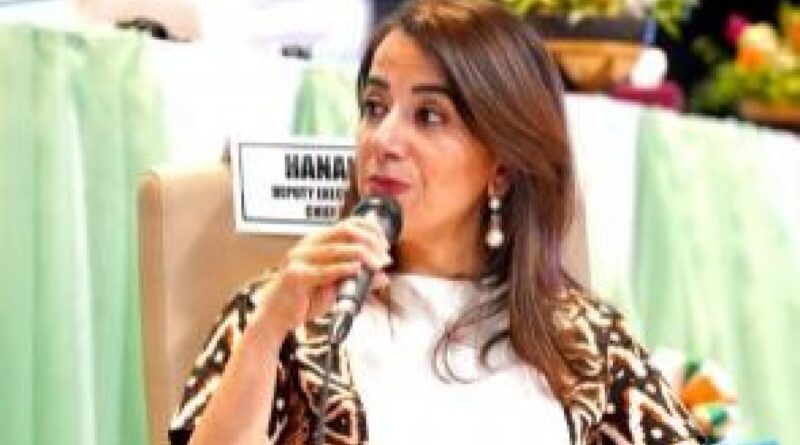Africa: Fresh commitment, investment needed to achieve SDGs in Africa
Niamey, Niger, 2 March 2023 (ECA) – Africa needs a paradigm shift to deliver sustainable development by making a fresh commitment and increasing investment to realize the SDGs, the Economic Commission for Africa’s Deputy Executive Secretary and Chief Economist, Hanan Morsy, urged African states.
“A big part in our quest to deliver the SDGs, we need a new paradigm, we need to accelerate action and we need to deliver green and inclusive recovery from the impact of multi crises, which have beset the world,” Ms. Morsy said in closing remarks at the 2023 African Regional Forum on Sustainable Development (ARFSD) which ended on 2 March in Niamey, Niger.
Ms. Morsy underlined that African countries have borne the brunt of the multi crises of food, fuel, the Ukraine war, the Covid pandemic and climate change to which they were ill-equipped to bounce back from.
Analyses by the ECA show that Africa will need around $438 billion of adaptation funding by 2030. Apart from the threats of climate change, security threats were also undermining efforts to make lasting development progress.
Ms. Morsy called for commitment to partnerships in achieving the SDG and emphasized the need for a renewed sense of solidarity and understanding that fast growth and recovery will be made by investing in regions where the most potential gains can be made.
“A clear message from this forum is that we need to break the risk aversion associated with investing in Africa,” Ms. Morsy said, calling for region-wide crowding of the private sector, harnessing blended finance and mobilizing domestic resources through the “monetizing of natural capital.”
It has been recognised that Africa can provide 50 percent of the world sequestration needs through its nature-based approaches. It is through this realization that the ECA has supported countries in the Congo Basin Commission to establish a carbon credit registry.
The three-day Forum underscored the need for accelerated investment in realizing the SDGs on clean water and sanitation; affordable and clean energy; industry, innovation, and infrastructure; sustainable cities and communities; and partnerships for the Goals.
In December 2023, African Heads of state met in Niamey, Niger, for the African Union Summit on industrialization and highlighted the urgency of boosting investment in sustainable value chains to transform African economies
The African Continental Free Trade Area (AfCFTA) is an effective lever for Africa to deliver on the SDGs, said Ms Morsy who noted that holding the Forum in Niger has highlighted the need for accelerated climate action for African countries to recover from crises.
According to the ECA analysis, she stated, “2 degrees of warming translates to over 15% of loss of GDP and we are currently on a course of in excess of 2.7 degrees of warming” in the Sahel where countries have the least capacity to respond.

Sign up for free AllAfrica Newsletters
Get the latest in African news delivered straight to your inbox
The Forum issued the Niamey Declaration calling on African countries to redefine and develop economic models integrating the protection of natural resources, in particular water, the promotion of renewable energies and a just transition.
In addition, the Declaration – expressing concern over the convergence of geopolitical, financial, climate and biodiversity crises in amplified economic hardship and reducing prosperity in Africa – called for the establishment of green and resilient infrastructure that promotes sustainable industrialization and the development of an urbanization that facilitates inclusive growth, taking into consideration the value of our human capital.
-Ends-
About the United Nations Economic Commission for Africa
Established by the Economic and Social Council (ECOSOC) of the United Nations (UN) in 1958 as one of the UN’s five regional commissions, the United Nations Economic Commission for Africa’s (ECA’s) mandate is to promote the economic and social development of its Member States , foster intraregional integration and promote international cooperation for Africa’s development. ECA is made up of 54 Member States and plays a dual role as a regional arm of the UN and as a key component of the African institutional landscape.
For more information, visit: www.uneca.org
Issued by:
Communications Section
Economic Commission for Africa
PO Box 3001
Addis Ababa
Ethiopia
Tel: +251 11 551 5826
E-mail: eca-info@un.org

